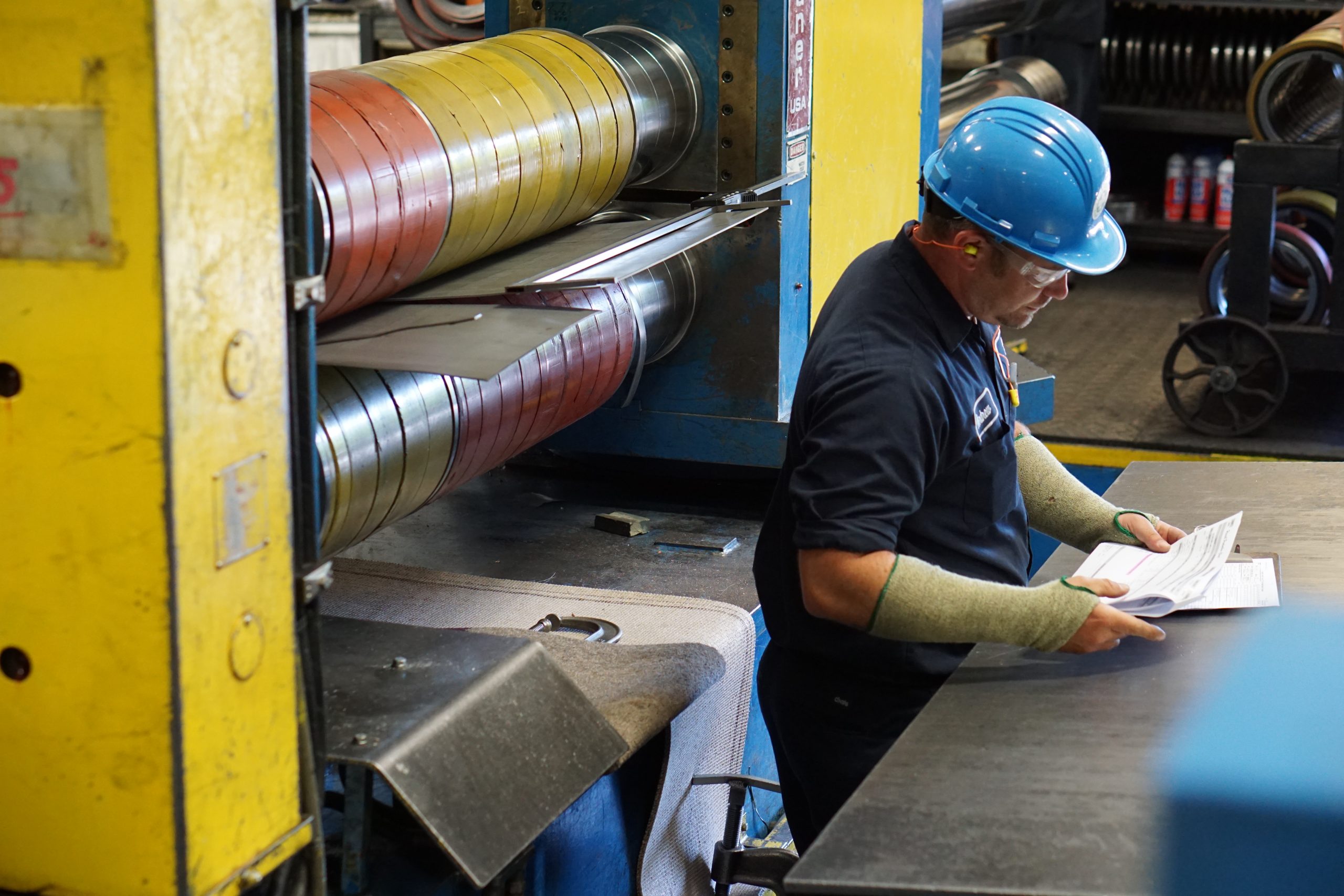Before Quality System registrations, there was a sort of “buyer beware” mentality in the manufacturing environment. 1994 brought the first standard quality system initiated by the automotive manufacturing governing boards to wrangle in the wild west of manufacturing that was occurring at the time. That standard, commonly known as QS-9000 was created to control production quality. These documents and regulations formed a guideline for a manufacturer’s own quality system development and required external audits to verify that registrants were following the procedures outlined in the standard. One feature of these quality systems was the requirement that SUBCONTRACTORS and SUPPLIERS also pursue their own quality system registration. Thus, twenty years ago, Hascall Steel Company was one of the first Steel Service Centers in Michigan to achieve a Quality System Registration, and that has helped maintain quality throughout the entire production process ever since.
What is ISO?
ISO is an acronym for the International Organization for Standards. They produce a framework or template of what components a quality system should contain. The template is relatively generic and broadly applicable. It doesn’t matter if you’re a trash collector company, florist, or steel distributor, you could take that template and build a quality system to fit your particular industry. Basically, the ISO Standard is a handbook that lays out rules, regulations, and guidelines to control quality and pursue customer satisfaction.
What Hascall has done to adopt a quality system compliant to ISO standards…
In order to adopt the methods and structure of ISO, Hascall regularly convenes an APQP team at the executive level. APQP (Advanced Product Quality Planning) is the spearhead group lead by the Quality Manager, Ken Bergman, that is very cross-functional with representation across various departments. The team members are the ones tasked with implementing and maintaining Hascall Steel’s quality system.
Several items are produced/maintained by the APQP Team, one of which is the documented system… It consists of:
-
- A policy manual that states company intention to comply with the components of the standard.
- A procedure manual that declares who does what, when in the world of quality.
- Work instructions that describe how something is done to achieve quality results.
- Control plans that establish the steps of a given production process
- Quality records that are generated inside the manufacturing environment
Every job that is run in house at Hascall is accompanied by a VCC (Variables Control Chart).
It is this quality record where employees document the objective and subjective observations related to customers’ requirements related to gauge, dimensional, or appearance qualities.
The fact that Hascall Steel has a quality system allows for standardization between shifts, between facilities, and between the work product. So whether something is being produced at 2:00 PM in Nashville or at 2:00 AM in Grandville, the same documented approach to the work and outcome of the work is ensured because the quality system exists. It also forces Hascall to react to customer concerns, to measure customer satisfaction, and to seek continuous improvement within the production process.
How the Standardized Changes have Improved Operations
The pinnacle of Hascall’s quality system is the quality policy statement. This is the capstone of the program, which leads every one of Hascall Steel’s employees to share in a unified goal of quality. It may be simple, but it holds true for the company as a whole:
“Hascall Steel Company is committed to meeting our customer’s’ requirements and expectations through quality.”
Most companies in the manufacturing environment or automotive environment abide by some standard quality system. Everybody has one, because it brings value to the organization.
Because they carry out this statement in the day to day operations, Hascall Steel has enjoyed deep and long term loyal customer relationships. The quality system has brought confidence both to Hascall Steel Company and to customers and partners about what they can expect from the production process.
While the statement itself doesn’t change, the ways in which quality functions throughout Hascall Steel’s operation does. The quality system is alive. That is how it works best. It is constantly being reviewed and updated when there is a concern from a customer which brings the need for systemic correction. With swift action, Hascall will make that correction and ensure that it is communicated thoroughly throughout the entire organization.
In a way, the quality system, shaped by ISO, has really become a part of everyday life at Hascall Steel. It’s embedded in almost every part of the process from purchasing, production, and delivery. The system is so ingrained in the culture that it’s really become habitual for employees. The policies, the procedures, the work instructions, and the control plans all result in the unification of quality in Hascall’s products and trusted customer relationships. While the ISO certification may be required by the majority of customers, there are few that hold this quality system in as high esteem as Hascall Steel Company.

